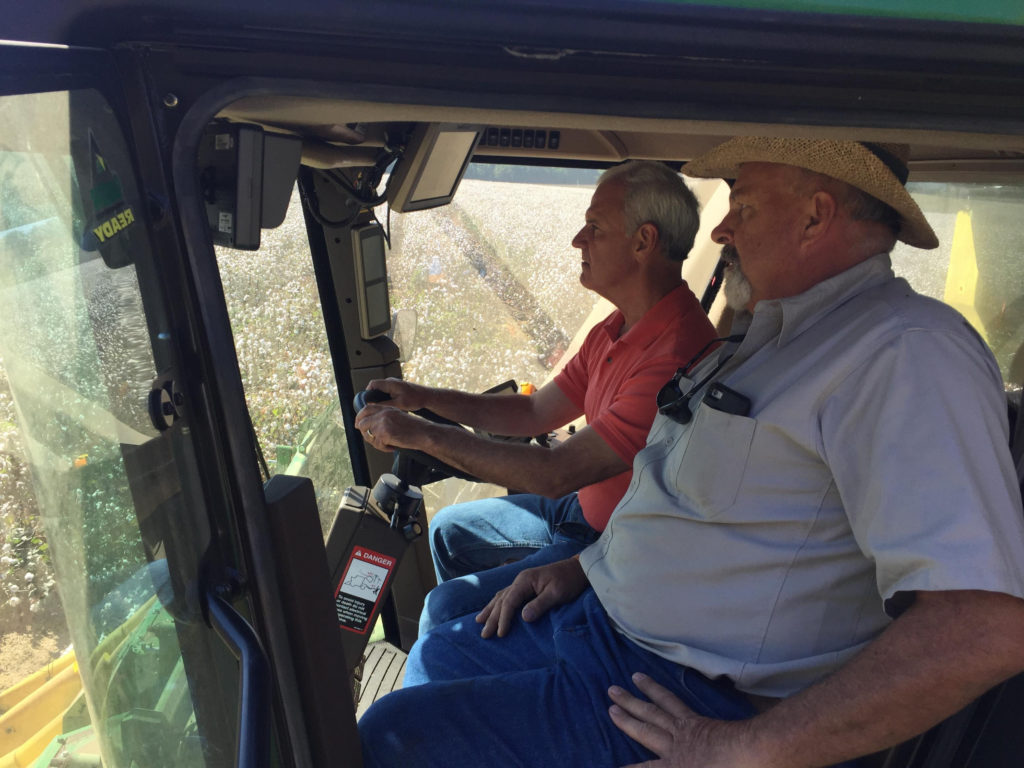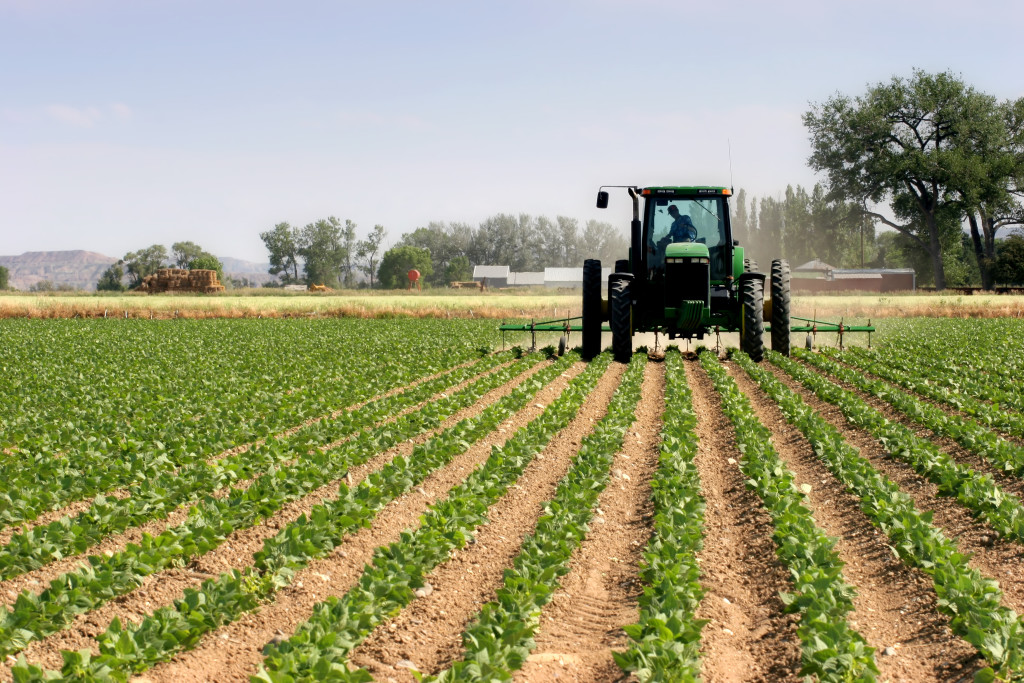AFA releases its next slate of Alabama Senate endorsements

The Alabama Forestry Association (AFA) announces its endorsement of Lance Bell, Jay Hovey, and Pete Riehm for seats in the Alabama Senate. The AFA represents Alabama’s forestry community with membership that includes forest products manufacturers, landowners, loggers, wood dealers, foresters, consultants, and others involved in forestry. Bell is running to represent Senate District 11, which covers parts of St. Clair, Talladega, and Shelby Counties. He is a lifelong St. Clair County resident and practices law focusing on plaintiff and civil defense matters, as well as providing criminal defense services. He has served as the Chairman of the St. Clair County Republican Party for six years. Bell currently serves as the Chairman of the 3rd Congressional District Alabama Republican Party Executive Committee. He and his wife, Holly, have two boys. Hovey is running for Senate District 27, which covers parts of Tallapoosa, Lee, and Russell Counties. He was born and raised in South Lee County in the Beauregard community. Hovey began his career as a firefighter for the City of Auburn to put himself through college. He now works as a mortgage loan originator for AuburnBank and has served as the Ward 7 Council Member for Auburn City Council for four years. Hovey has served two terms on the Lieutenant Governor’s state Small Business Advisory Commission. He and his wife, Anna, have been married for 20 years. “I am incredibly honored to receive the endorsement of the Alabama Forestry Association,” stated Hovey. “I very much appreciate their active conservative voice across our state. Timber and forest products are very important to District 27. AFA’s support for landowner’s rights and small business interests are paramount to continued success.” Riehm is running to represent District 33, which covers parts of Mobile and Baldwin Counties. He retired from the U.S. Navy after 21 years. Since retiring in 2005, Riehm is active in the Mobile Bay Area Veterans Day Commission. He is now a Commercial Real Estate broker with CRE Mobile and is civically involved in serving as a Land Commissioner for the Mobile County Probate Court. Riehm and his wife, Debra, have four children. “Timberland is one of Alabama’s most precious resources, and forestry products are integral to Alabama’s economy, so it is vitally important that we advance our forestry industries and protect their interests for posterity,” said Riehm. “The AFA is a tremendous advocate for our forestry community, and I appreciate their relentless efforts, so I am humbled and honored to earn their very important endorsement to serve as Senator for District 33.” The General Election is November 8, 2022.
Alabama Forestry Association announces first endorsements for the Alabama House of Representatives

The Alabama Forestry Association (AFA) announced its endorsement of several candidates for the Alabama House of Representatives. The AFA represents Alabama’s forestry community and is dedicated to protecting and improving the business, regulatory and legal environment for landowners and forest business owners to ensure the sustainable growth of Alabama’s forests and forest industry. This year the AFA is endorsing Joe Lovvorn, Arnold Mooney, Tommy Hanes, Margie Wilcox, and Jamie Kiel for seats in the Alabama House of Representatives. Joe Lovvorn is running for reelection for House District 79, which covers part of Lee County. Lovvorn has a bachelor’s degree from Auburn’s College of Agriculture and earned his Master’s degree from Auburn’s College of Business. He is a realtor and owns Two Men and A Truck in Auburn and Montgomery. He and his wife, Jenifer, have two children. “As the grandson of a saw miller and the son of a timber farmer, I was raised to appreciate the positive impact of the forestry industry in Alabama,” stated Lovvorn. “I value and appreciate the endorsement of the Alabama Forestry Association and look forward to serving Alabama another four years.” Arnold Mooney is running for reelection for House District 43, which covers part of Shelby County. He has spent over 40 years in the commercial real estate business. He has been married to his wife, Kelly, for over 37 years. They have three children and ten grandchildren. “I am very pleased to receive the endorsement of such an outstanding organization as the AFA,” said Mooney. “The forestry industry is a multi-billion dollar contributor to the economy of our state and Shelby County, where my house district is located. AFA and its members support conservative values and principles and are pro-business and free enterprise. They stand, as well,for fiscal responsibility, private property rights, and limited government. I am proud to stand with them!” Tommy Hanes is running for a third term for House District 23, which covers parts of Jackson and DeKalb Counties. He is a member of the House Agriculture and Forestry Committee. Hanes is a retired firefighter. He has been married to his wife, Rhonda, for over 43 years. “I’m once again honored to receive the endorsement for my reelection from what is considered to be the most conservative group in the state,” Hanes stated. “It’s great to be in such great company as the Alabama Forestry Association!” Margie Wilcox is running for reelection for House District 104, covering part of Mobile County. She was first elected into the House in 2014. Wilcox is a small business owner, owning Mobile Bay Transportation and Pensacola Bay Transportation, and she is a longtime resident of Mobile County. “I am honored to be supported by Alabama Forestry representing thousands of hard-working Alabamians,” said Wilcox. “Their conservative principles are near and dear to my own beliefs, and I look forward to continuing our efforts to protect Alabama’s conservative values, low taxes, and amazing quality of life.” Jamie Kiel is serving his first term in the House and is running for reelection for House District 18, which covers parts of Colbert, Lauderdale, and Franklin Counties. He is a graduate of the University of North Alabama and is a small business owner. His business, Kiel Equipment, has been operating for about 27 years in Russellville. Kiel and his wife, Melissa, have threedaughters. “I am honored to be endorsed by the Alabama Forestry Association.,” said Kiel. “The AFA works hard for fiscally conservative policy in our state. I appreciate their stand for low taxes and responsible spending. I will continue to fight for the hard-working forestry-related businesses who are a key component of our state’s economy.” The primary election is on May 24, 2022.
Rep. Terri Sewell introduces Disaster Reforestation Act of 2021

U.S. Reps. Terri Sewell and Buddy Carter introduced H.R. 4210, the Disaster Reforestation Act of 2021. This legislation aims to help family and private timber growers recover from the loss of timber destroyed by natural disasters and reforest their lands. Rep. Sewell stated in a press release, “Alabama’s beautiful forests keep our economy, our environment, and our people healthy, but when disaster strikes, our private forest owners are often left devastated and without the ability to quickly recover. By fixing our tax code, the Disaster Reforestation Act offers a helping hand to Alabama’s private forest owners as they work to reforest after natural disasters. I am so proud to introduce this legislation and urge my colleagues to support it.” On Twitter, Sewell stated, “Our beautiful Alabama forests keep our economy, environment, and people healthy. We must ensure that our tax code helps forest landowners recover after devastating natural disasters. My Disaster Reforestation Act would do exactly that!” Our beautiful Alabama forests keep our economy, environment, and people healthy. We must ensure that our tax code helps forest landowners recover after devastating natural disasters.🌳 My Disaster Reforestation Act would do exactly that! Read more here: https://t.co/yZSgcK8OcL pic.twitter.com/vBi1hqg1Oi — Rep. Terri A. Sewell (@RepTerriSewell) June 29, 2021 Rep. Carter commented, “Forestry is a vital part of rural economies all across our country. Unfortunately, the current tax code provides no recourse for working forests struck by natural disasters. I’m proud to work with Congresswoman Sewell and our partners from across the country to address this issue. The Disaster Reforestation Act will ensure timber farming is a viable way of life, protecting the many jobs and consumer products it supports and its positive impact to our environment.” Alabama’s private forest landowners face immense financial burdens when needing to reforest their lands after a natural disaster, especially families and small timber companies. The Disaster Reforestation Act would reduce this financial burden by providing for the equitable tax treatment of casualty loss of their timber crop when disaster strikes. In doing so, it would foster stability and growth in one of Alabama’s key industries and promote environmental wellness through reforestation. “This legislation is key in helping family forest owners recover after natural disasters and keeping Alabama’s forests as forests,” stated Gray Skipper, Alabama Landowner and VP of Scotch Plywood Company. “This will ensure the forest products consuming mills have trees in the future to maintain local economies. It will also ensure these forests, some of which are the most biologically diverse in the country, can continue sequestering carbon, supporting at-risk species, providing the clean water supply, and recreation for Gulf communities.” Chris Isaacson, President and CEO of Alabama Forestry Association commented, “Alabama’s 23 million acres of healthy forests supply the raw material for the state’s $28 billion forest industry that creates jobs for 123,000 Alabama workers. The investment required by forest landowners over the decades from planting to harvest is at constant risk from natural disasters. Under the current tax code, when disaster strikes landowners lose twice. They lose their timber and they lose the ability to deduct the value of the timber damaged. We are grateful that Congresswoman Sewell recognizes this inequity and applaud her for taking a leadership role in helping landowners and their local communities recover.” “America’s forest landowners have been waiting for this vital fix in the tax code and are appreciative of Representative Sewell and Carter’s efforts to introduce the Disaster Reforestation Act,” said Scott Jones, CEO of the Forest Landowners Association.“The legislation will not only help timber owners recover from natural disasters but will stimulate rural economies and support our nation’s domestic timber supply.” The Disaster Reforestation Act has received support from national forestry stakeholders including: The Forest Landowners Association The Southern Group of State Foresters The American Forest Foundation The National Association of State Foresters The Society of American Foresters F&W Forestry Services The Association of Consulting Foresters The National Alliance of Forest Owners
Here’s everyone the Alabama Forestry Association has endorsed in the 2018 election cycle

ForestPAC the official political action committee of the Alabama Forestry Association, whose mission is to promote good stewardship of our renewable forest resources for the benefit of society and the forestry community, has announced its endorsement of candidates for the upcoming June 5 primary elections. ForestPAC is strictly non-partisan and supports candidates based on their pro-forestry and pro-business philosophy and record. Their mission is to elect candidates for legislative, local and statewide offices who demonstrate a commitment to conservative principles and support of forestry issues. The Board of Directors uses the following criteria to determine which candidates to support: Candidates who exhibit a pro-business, free enterprise philosophy. Candidates who support the positions of the Alabama Forestry Association and other issues of concern to the forestry community. Candidates with a voting record that is supportive of AFA issues and issues of concern to the Alabama business community. Candidates who demonstrate the ability to wage a successful campaign for office and who are politically viable. Candidates that receive the recommendation of the ForestPAC district advisory committee in their local area. Here’s everyone the Alabama Forestry Association has endorsed: Statewide races Governor Kay Ivey (R; incumbent) Lieutenant Governor: Will Ainsworth (R-Guntersville) Secretary of State: John Merrill (R; incumbent) State Treasurer: John McMillan (R; currently the Commissioner of Agriculture and Industries) Commissioner of Agriculture and Industries: Rick Pate (R) State Senate races District 1: Tim Melson (R-Florence; incumbent) District 3: Arthur Orr (R-Decatur; incumbent) District 4: Paul Bussman (R-Cullman; incumbent) District 5: Senate Majority Leader Greg Reed (R-Jasper; incumbent) District 6: Dr. Larry Stutts (R-Tuscumbia; incumbent) District 7: Sam Givhan (R-Huntsville) District 8: Steve Livingston (R-Scottsboro; incumbent) District 9: Clay Scofield (R-Arab; incumbent) District 10: Mack Butler (R-Rainbow City) District 11: Jim McClendon (R-Springville; incumbent) District 12: Senate Pro Tem Del Marsh (R-Anniston; incumbent) District 14: Cam Ward (R-Alabaster; incumbent) District 15: Dan Roberts (R-Birmingham) District 16: Jabo Waggoner (R-Vestavia Hills; incumbent) District 17: Shay Shelnutt (R-Trussville; incumbent) District 18: Rodger Smitherman (D-Birmingham) District 21: Gerald Allen (R-Tuscaloosa; incumbent) District 22: Greg Albritton (R-Bay-Minette; incumbent) District 24: Bobby Singleton (D-Greensboro; incumbent) District 25: Will Barfoot (R-Pike Road) District 27: Tom Whatley (R-Auburn; incumbent) District 28: Billy Beasley (D-Clayton; incumbent) District 29: Donnie Chesteen (R-Geneva) District 30: Clyde Chambliss (R-Prattville; incumbent) District 31: Jimmy Holley (R- Elba; incumbent) District 32: David Northcutt (R-Fairhope) District 34: Jack Williams (R-Wilmer) District 35: David Sessions (R-Mobile) State House races District 1: Phillip Pettus (R-Killen; incumbent) District 2: Lynn Greer (R-Rogersville; incumbent) District 3: Andrew Sorrell (R-Muscle Shoals) District 4: Tom Fredericks (R-Priceville) District 5: Danny Crawford (R-Athens; incumbent) District 6: Andy Whitt (R-Huntsville) District 7: Proncey Robertson (R-Decatur) District 8: Terri Collins (R- Decatur; incumbent) District 10: Mike Ball (R-Madison; incumbent) District 12: Corey Harbison (R-Cullman; incumbent) District 13: Connie Rowe (R-Jasper; incumbent) District 14: Tim Wadsworth (R-Arley; incumbent) District 15: Allen Farley (R-McCalla; incumbent) District 16: Kyle South (R-Fayette; incumbent) District 20: Howard Sanderford (R-Huntsville; incumbent) District 21: Rex Reynolds (R-Huntsville) District 22: Ritchie Whorton (R-Owens Cross Roads; incumbent) District 23: Tommy Hanes (R-Bryant; incumbent) District 24: Nathaniel Ledbetter (R-Rainsville; incumbent) District 25: Speaker of the House Mac McCutcheon (R-Monrovia; incumbent) District 26: Kerry Rich (R-Guntersville; incumbent) District 27: Wes Kitchens (R-Arab) District 29: Becky Nordgren (R-Gadsden; incumbent) District 31: Mike Holmes (R-Wetumpka; incumbent) District 34: David Standridge (R-Hayden) ; incumbent District 36: Randy Wood (R-Anniston; incumbent) District 37: Bob Fincher (R-Woodland; incumbent) District 40: K.L. Brown (R- Jacksonville; incumbent) District 41: Corley Ellis (R-Columbiana; incumbent) District 43: Arnold Mooney (R-Indian Springs; incumbent) District 44: Danny Garrett (R-Trussville; incumbent) District 45: Dickie Drake (R-Leeds; incumbent) District 46: David Faulkner (R-Birmingham; incumbent) District 47: David Wheeler (R-Vestavia) District 48: Jim Carns (R-Birmingham; incumbent) District 49: April Weaver (R-Alabaster; incumbent) District 50: Jim Hill (R-Odenville; incumbent) District 51: Allen Treadaway (R-Morris; incumbent) District 53: Anthony Daniels (D-Huntsville; incumbent) District 55: Rod Scott (D-Fairfield; incumbent) District 61: Rodney Sullivan (R-Northport) District 62: Rich Wingo (R-Tuscaloosa; incumbent) District 63: Bill Poole (R-Tuscaloosa; incumbent) District 65: Elaine Beech (D-Chatom; incumbent) District 66: Alan Baker (R-Brewton; incumbent) District 67: Prince Chestnut (D-Selma; incumbent) District 68: Thomas Jackson (D-Thomasville; incumbent) District 70: Chris England (D-Tuscaloosa; incumbent) District 71: A.J. McCampbell (D-Livingston; incumbent) District 72: Ralph Howard (D-Greensboro; incumbent) District 73: Matt Fridy (R-Montevallo; incumbent) District 75: Reed Ingram (R-Montgomery; incumbent) District 79: Joe Lovvorn (R-Auburn; incumbent) District 80: Chris Blackshear (R-Phenix City; incumbent) District 82: Pebblin Warren (D-Tuskegee; incumbent) District 85: Dexter Grimsley (D-Newville; incumbent) District 86: Paul Lee (R-Dothan; incumbent) District 88: Al Booth (R-Prattville) District 90: Chris Sells (R-Greenville; incumbent) District 92: Mike Jones (R-Andalusia; incumbent) District 93: Steve Clouse (R-Ozark; incumbent) District 95: Steve McMillan (R-Bay Minette; incumbent) District 96: Matt Simpson (R-Mobile) District 100: Speaker Pro Tem Victor Gaston (R-Mobile; incumbent) District 101: Chris Pringle (R-Mobile; incumbent) District 102: Willie Gray (R-Citronelle) District 105: Chip Brown (R-Mobile) Alabama Supreme Court Supreme Court Chief Justice: Lyn Stuart (R) Place 1: Brand Mendheim (R) Place 2: Tommy Bryan (R) Place 3: Will Sellers (R) Place 4: Jay Mitchell (R) Civil Court of Appeals Place 1: Michelle Manly Thomason (R) Place 2: Terri Thomas (R) Place 3: Terry Moore (R) Criminal Court of Appeals Place 1: Richard Minor (R) Place 2: Chris McCool (R) Place 3: Bill Cole (R)
Alabama forest products industry poised for gains after strong year

After a banner year for the forest products industry in Alabama, the sector is primed for even more growth and innovation. Last year, Alabama recorded forest products industry projects involving $1.2 billion in new investment and more than 1,000 anticipated jobs, according to the Alabama Forestry Association and the 2016 New and Expanding Industry Report issued by the Alabama Department of Commerce. The investment total made forest products the state’s top Accelerate Alabama target industry for 2016, surpassing the juggernaut automotive and aerospace industries, which recorded impressive totals of their own. Accelerate is the state’s strategic economic development growth plan. Forest products is a cyclical industry and is on a prolonged upswing after a severe industry recession, said Ken Muehlenfeld, director of the Forest Products Development Center at AIDT, the state’s top workforce training agency. “Demand is expanding across many industry segments,” he said. “Alabama is benefiting by virtue of its strong timber resource base, competitive cost structure, pro-business environment and targeted economic development strategy.” Industry innovation Meanwhile, innovation is being seen across the industry, in both products and processes, Muehlenfeld said. “A good example of product innovation would be the announcement in June by International Beams, which is building the first plant of its kind in the eastern U.S. to produce a new engineered wood product, cross-laminated timber, in Dothan,” he said. “Another would be Kronospan, which is making huge investments at its existing facility in Calhoun County to add a variety of value-added downstream products.” As for process innovation, Two Rivers Lumber Co. and Weyerhaeuser Co. are building state-of-the-art sawmills in West Alabama. “A number of existing sawmill operations are upgrading their process technology to improve product recovery, production capacity and cost efficiency,” Muehlenfeld said. New product Another example of innovation in Alabama’s forest products industry can be found in Clarke County, at Louisiana-Pacific Corp.’s $265 million operation near Thomasville, which employs nearly 200 people. The company, a leading manufacturer of engineered wood building products, last year spent $15 million to install a new LP FlameBlock production line at the Clarke County facility, and it is now the sole LP production source for this innovative product. FlameBlock, which has a fire-rated sheathing that slows the spread of a fire, is used on interior and exterior wall assemblies and roof deck applications of single-family or multi-family homes and businesses. In Clarke County, Alabama workers manufacture the panel itself and, in a separate process, apply the coating that makes it fire-rated. “This is the first coating line we have at LP,” said Lorraine Russ, business product manager for the company. Changes in U.S. building codes have driven the need for the product, she said. “As we all become more aware of how we can build better buildings, so fire is less of a risk, codes have been put in place to combat the risk,” she said. “This product is a great example of how we can support those code changes.” Current trends in the building industry include more wood frame construction in multifamily dwellings, along with single-family homes being built closer together on zero lot lines. FlameBlock also helps improve efficiency and reduce labor costs and construction time on job sites. Builders don’t have to install a separate fire-rated panel in addition to a structural one; FlameBlock serves as both. Russ said the company is anticipating 15 percent year-over-year growth in FlameBlock sales. The new LP FlameBlock production line puts the spotlight on the Clarke County operation, which has been recognized by the company for its 2016 safety record and with environmental awards for a successful reuse program for wood ash. “LP Clarke County plays an important role in our company’s largest business segment – oriented strand board,” LP Clarke County Plant Manager Wayne Young said. He added, “One reason LP leadership selected Clarke County for the LP FlameBlock production line is because of our strong workforce. Our team of employees has a winning spirit and the quest to make a quality product that represents Clarke County and Alabama very well.” Forestry resources Alabama has the second-largest commercial timberland base in the U.S., with 23 million acres. Forestry is the state’s second-largest manufacturing industry, producing an estimated $14.8 billion worth of products in 2013, the latest data available. The industry directly employs 42,500 Alabamians with an annual payroll estimated at $2.1 billion. Key projects in 2016 included Kronospan, an Austrian maker of laminate flooring, which announced a $362 million expansion of its Calhoun County facility, and Lenzing, also based in Austria, which is investing $293 million to expand production of eco-fibers at its plant in Mobile. Muehlenfeld said he is optimistic about the current industry cycle. “I think we have a good bit further to run with regard to this industry expansionary cycle. Housing starts are still well below their equilibrium level, and only at about 60 percent of the pre-recession peaks. The demographics indicate strong demand for wood products is likely.” Alabama is well-situated to capitalize, Muehlenfeld said. “We have an abundance of high-quality timber that’s being grown much faster than we’re using it. This suggests that we can sustainably support significantly more manufacturing capacity, with a very favorable outlook for wood costs,” he said. Republished with permission of Alabama NewsCenter.
Bradley Byrne: Agriculture matters

Despite Alabama’s growth in manufacturing, agriculture remains the top industry in the state, as well as the top industry right here in Alabama’s First Congressional District. The economic impact of agriculture in our state is over $70 billion. Here in Southwest Alabama, over 102,000 jobs are connected to agriculture and forestry. In Congress, I have made it a top priority to support agriculture. From voting in favor of the 2014 Farm Bill to helping push back against costly regulations, I am constantly looking for ways to make life easier for our farmers and foresters. In order to better understand the issues facing the industry, I recently held my second annual “Ag Matters” tour of farms and forests in Southwest Alabama. I was honored to be joined on the tour by Alabama Commissioner of Agriculture John McMillan and representatives from the Alabama Farmers Federation and the Alabama Forestry Association. We kicked things off in Baldwin County at Sirmon Farms near Belforest. I checked out their sweet potato and hydroponic lettuce operations, visited one of their cotton fields, and rode in the cotton picker. From there, we headed over to Canfor/Scotch-Gulf’s lumber mill in Mobile. They also have mills in Jackson and Fulton. I learned about the need for the Forest Service to make more timber available for purchase, which is good for the lumber mills but also helps keep the forest healthy. Next, we headed up to Washington County to check out timber harvesting near Chatom. Our foresters continue to face a range of challenges associated with the Endangered Species Act. I believe it is important we reform the Endangered Species Act to make sure it is based in actual science and does not place unnecessary burdens on our foresters. In fact, healthy forest management is actually good for many of these species. After spending dinner with the Baldwin County Farmers Federation, we kicked off the next day at AGRI-AFC in Atmore. When thinking about agriculture, it is easy to forget all the different businesses that support our farmers. AGRI-AFC provides crop nutrient and crop production products, in addition to agronomic services. Science is very important to ensure the soil is healthy and ready for planting. Next, we visited Brooks Farms near Uriah. It was harvest time for cotton, and I was able to check out their cotton gin. Cotton farmers faced another difficult year due to low prices. Farmers hoped the federal Department of Agriculture would designate cottonseed as an “other oilseed,” which would have provided assistance through farm bill programs. Sadly, they failed to make that designation, but I will continue pressing for the change to be made. While in Monroe County, we visited Harrigan Lumber in Monroeville. Over 90 percent of the total workforce in Monroe County is connected to agriculture and forestry. I talked with the Harrigan family about the need to improve skills training and fight back against burdensome regulations from the Department of Labor. We wrapped things up in Clarke County at Silver Creek Forests near Whatley. I observed an operation where they spray a solution on the clear cut to kill species that would compete with the loblolly pine, which they were preparing to plant. It was helpful to learn more about healthy forest management practices. Overall, it was a very informative few days of learning more about the challenges our farmers and foresters face on a daily basis. The “Ag Matters” tour simply reaffirmed my commitment to fighting for agriculture throughout my time in Congress. • • • Bradley Byrne is a member of U.S. Congress representing Alabama’s 1st Congressional District.
Bradley Byrne: Agriculture key to local economy

You often hear a lot about how the United States economy is becoming more and more dependent on manufacturing. The same holds true for us here in South Alabama with big companies like Airbus and Austal setting up operations in our area. With the growth in manufacturing, it is easy to lose focus on the fact that agriculture remains the top industry in Alabama. 580,000 jobs in our state are related to agriculture and forestry. Agriculture’s impact on the state’s economy is over $70 billion a year. Right here in the First Congressional District, over 100,000 jobs are tied to agriculture. With this in mind, last week I set off on a two-day, six county “Ag Matters” tour to visit with farmers and foresters in Southwest Alabama. I was happy to be joined on the tour by Alabama Agriculture Commissioner John McMillan and representatives from the Alabama Farmers Federation and the Alabama Forestry Association. We started things off in Baldwin County at a farm outside of Robertsdale. From there, we stopped by farms in Uriah, Leroy, and Grand Bay. We also held a roundtable with local forestry leaders in Brewton, visited private timberland in Evergreen, and toured the Scotch Plywood facility in Clarke County. At each stop, I learned new information about some of the challenges facing our nation’s farmers and foresters. One common theme at all the stops was that federal regulations from Washington are making life harder for our local farmers. For example, the EPA’s recently proposed “Waters of the US” rule will greatly expand the agency’s ability to regulate bodies of water. Some legal scholars believe the regulation is so broad that it could lead to the EPA regulating bodies of water as small as ditches or puddles in a farm pasture. If this regulation goes into effect, our local farmers and foresters would be required to seek special permits or face outrageous fines. Instead of being able to focus on farming, they would have to spend precious time and money complying with frivolous federal mandates. Any additional costs would likely be passed on to the consumer in the form of higher grocery bills. Just last week, a federal judge issued a ruling that puts the future of the regulation in question, Regardless of what the courts say, I will keep working in Congress to get rid of this silly regulation. Another concern I heard a lot about during my “Ag Matters” tour related to the Endangered Species Act. Farmers and foresters often have to suspend operations due to new species being declared endangered or threatened. These species range from things like the black pine snake to the gopher tortoise. I am all for protecting our nation’s wildlife, but it is clear the Endangered Species Act isn’t working. In fact, the Endangered Species Act has had very little success in recovering and protecting key domestic species and instead the law has resulted in excessive litigation. That is why I supported a bill last year to reform the Endangered Species Act to ensure more accountability and transparency in the process. No one is going to be a greater steward of the land than those who depend on our natural resources in order to make a living. Our farmers and foresters don’t need federal regulators from Washington – who have never even been to Alabama – telling them how to run their farms. Ultimately, when our “Ag Matters” tour wrapped up in Mobile County last Friday, I had an even greater appreciation for the challenges facing our agriculture industry, but I took great hope in the dedicated and hardworking farmers and foresters who call Southwest Alabama their home. Bradley Byrne is a member of the U.S. Congress representing Alabama’s 1st Congressional District.
NFIB celebrating Small Business Day in Montgomery
The Alabama chapter of the National Federation of Independent Businesses is celebrating its annual “Small Business Lobby Day” with a luncheon in the Capital City. “Small businesses are the backbone of the American economy,” said NFIB President and CEO Dan Danner in a statement promoting the national event. “They creates more jobs than any other sector and it represents half of the national economic output. But from the earliest days of the country it’s also been the way upward for ordinary Americans, including the poorest.” “The money that you spend at the bakery, or the florist, or the local auto mechanic stays in your community,” said Danner via news release. “That’s good for communities, good for states and ultimately the key to our national economic strength.” “The money that folks spend at local stores and with local contractors for the most part gets invested right back into the community,” he continued. “So this is a good week to visit your neighbors in business and do something good for your community.” The lunch is going on from now until 2 p.m. at the offices of the Alabama Forestry Association, on 555 Alabama St. in Montgomery. Legislators and pro-small business advocates will be on hand to discuss 2015 Legislative Session so far and to track the progress of the NFIB’s issues locally. There’s no charge to attend.

